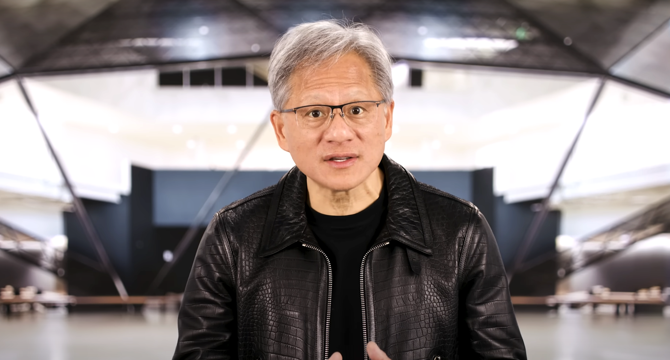Siliconangle
1M
53

Image Credit: Siliconangle
Nvidia’s SC24 special address hints at a new era in computing and AI
- Nvidia showcased its vision for AI and computing with founder and CEO Jensen Huang leading the address. Nvidia's virtual GPU, named Blackwell, has an energy-efficient system with a liquid-cooled system and is capable of powering machine-based robots that can adapt to their surroundings for production and logistical processes. Nvidia has maintained its status as a leading industry competitor because of CUDA, which simplifies the process of building services and applications that utilise the underlying Nvidia technology. AI, according to Nvidia, has arrived and will drive productivity growth and job creation while transforming scientific research and industries through accelerated computing.
- Nvidia discussed AI’s integration into scientific workflows, which range from drug discovery to climate modelling where AI accelerates simulations and real-time data analysis. The recently announced CuPyNumeric enables researchers to scale Python-based projects across GPU clusters without rewriting code. The event also highlighted the importance of partnerships in HPC.
- Together with Ian Buck, Nvidia's Vice President and general manager for high-performance computing, Huang said the CUDA-X libraries have fuelled a virtuous cycle of adoption, partnerships, and developer engagement and have broadened the application of Nvidia hardware across virtual domains such as healthcare and telecommunications.
- Energy efficiency was a recurring theme throughout the presentation, as Huang cited AI-driven systems like Blackwell as tools to help industries adapt to global problems, climate change in particular, which aligns with the growing demand for sustainable computing practices as energy costs rise.
- According to industry watcher, Zeus Kerravala at SiliconANGLE, Nvidia's leadership in this space sets a high bar, challenging others to innovate and adapt in a rapidly evolving landscape, identifying collaboration, transparency and sustainability as critical elements in harnessing the transformative power of AI.
- AI is not simply a tool, according to NVIDIA, as it is poised to become transformative when scaled. Huang predicted AI will drive productivity and job growth as it powers humanoid robots capable of adapting and performing tasks with minimal instruction, and while the larger technology community should invest in comprehensive ecosystems that enable seamless integration across applications.
- David Keyes of King Abdullah University of Science and Technology illustrated the potential for intelligent horticulture. He said his team scaled genomic studies to simulate 13 million synthetic patients and this paved the way for synthetic population health studies.
- Blackwell sits at the intersection between innovations in high-performance computing and advances in AI. Nvidia makes graphics processing units, but its CUDA programming dramatically simplifies the process of building applications and services that use underlying technology, keeping Nvidia out front of the competition.
- The SC24 conference brought together leaders in the HPC space to tackle the urgent needs of industry and scientific research through the integration of AI but more crucially, the need for sustainable computing in an environment where energy consumption is a global concern.
- One frustration for Ai infrastructure is that many industry watchers call the technology out for being power-hungry. But without it, tasks such as compiling information would require media guides and searching numerous videos. AI might use more power in one operation than a related one, but the alternate solution could take weeks to complete.
- NVIDIA CEO Jensen Huang has said that the world of high-performance computers is among humanity's most vital instruments, driving scientific breakthroughs and expanding the frontiers of knowledge by empowering researchers to conduct work previously deemed impossible. Huang opened the address by discussing the societal importance of supercomputing.
Read Full Article
3 Likes
For uninterrupted reading, download the app